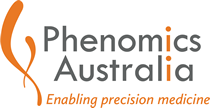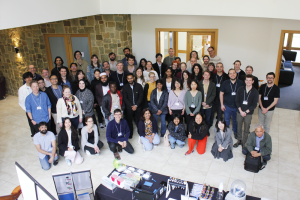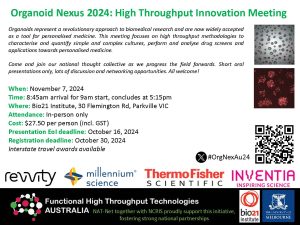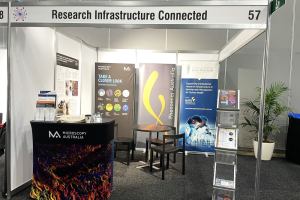Discoveries that alter the course of human history often emerge through collaborative efforts rather than solitary genius.
This was exemplified by Professor Jennifer Doudna and Professor Emmanuelle Charpentier’s partnership, which led to the groundbreaking discovery of the CRISPR tool, a revolutionary gene-editing technology. Their collaboration at a microbiology conference sparked a journey of scientific exploration and breakthroughs, paving the way for potential applications in medicine, agriculture, and beyond.
The significant role played by Phenomics Australia Scientific Director, Professor Paul Thomas and the South Australian Genome Editing (SAGE) Facility underscores CRISPR’s widespread adoption and profound impact across various scientific fields. As the CRISPR revolution continues to unfold, it offers unprecedented opportunities to address inherited diseases, enhance agricultural resilience, and potentially reshape the future of humanity.
Thomas met Doudna when she visited Victoria in 2018. “She is a superstar in the world of science, but she was very down-to-earth and so keen to share her knowledge,” he says. “I wasn’t surprised when she went on to win the Nobel Prize.”

Professor Thomas estimates at least 100 labs across Australia are now using CRISPR technology in a range of fields, and the number is increasing by the month. “It’s a very effective and cheap tool, which has enabled many labs that couldn’t have done molecular research in the past to do so,” he says. “It’s been a game-changer.”
Thomas’s lab is using CRISPR technology for its research on inherited diseases, retinitis pigmentosa and Duchenne muscular dystrophy, which are caused by “mistakes” in specific genes. CRISPR offers the possibility that these diseases can be stopped in their tracks or cured with a single “knock-out” therapy. “CRISPR is both a research tool and a therapeutic tool,” he says. “It is a little molecular machine – allowing genetic modification of cells or animals to investigate a disease and develop new therapies.”
Read more: Will a revolutionary DNA-editing tool end disease – or threaten humanity? By Greg Callaghan.







